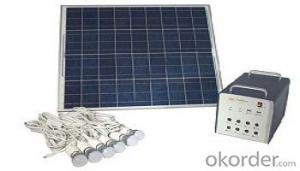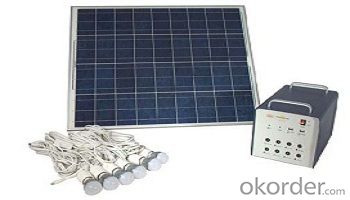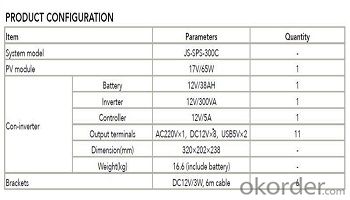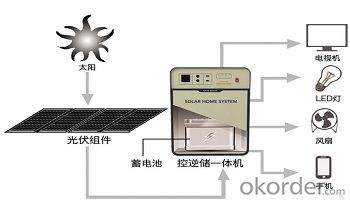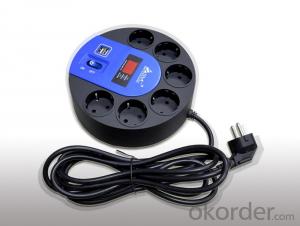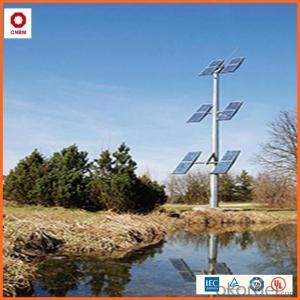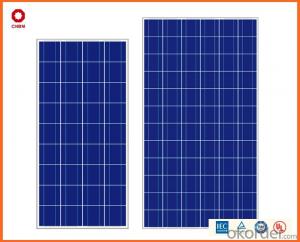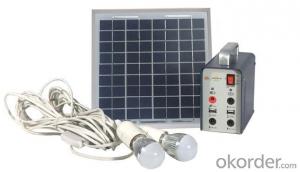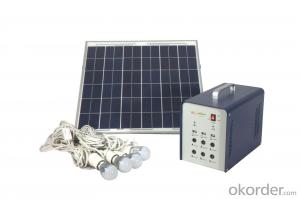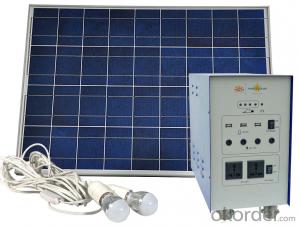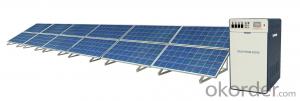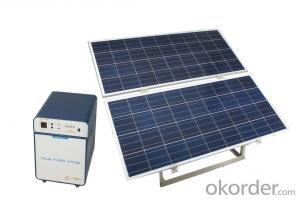Solar Energy Systems Houston:SPS-15 Micro Off Grid Solar System with LED Lighting
- Loading Port:
- China main port
- Payment Terms:
- TT OR LC
- Min Order Qty:
- 10 watt
- Supply Capability:
- 100000 watt/month
OKorder Service Pledge
OKorder Financial Service
You Might Also Like
Product Description:
Name: SPS-15 Micro off Grid Solar System with LED Lighting
Solar power system provides alternating current and direct current, which is produced by the modules transforming solar power into power, to home lighting, household appliance and other DC appliance, such as cell phone and laptop.
Solar power system is widely used in area lack of power, for example house power supplying, monitoring, communication base, fire prevention in forest area, pasture and meadow, aquaculture etc.
Solar DC Lighting System
Multiple protection system, safe and reliable performance.
Integrated and portable design, easy operation.
DC5V, DC12V, AC220V output, wide range application.
Clean engergy, cycle use.
Packaging & Delivery:
Packaging Detail: Quantity of carton :3pcs Color Box size: 28.5*11.5*12187.5px , 2.66kg/pc Carton size: 36.5*31*14375px G.W/N.W: 8.7/8.0 kg
Delivery Detail: 25 working days according to order quantity
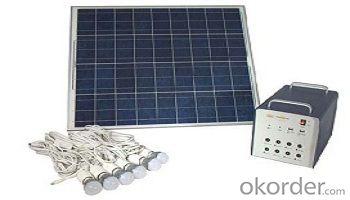
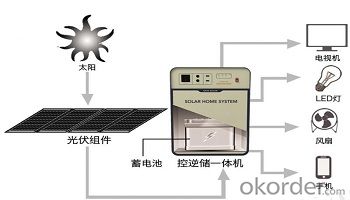
Advantages:
1.Solar Energy&green energy.
2. Easy to install, operate and maintain.
3. Ideal lighting products where normal electric is not convenient.
Packing details:
Quantity of carton :3pcs
Color Box size: 28.5*11.5*12187.5px ,
2.66kg/pc
Carton size: 36.5*31*575cm
G.W/N.W: 8.7/8.0 kg
Our services:
1. Sample: Sample is available. Please send us email about your detail consignee information: name, address, zip code and tel. Then we will contact you and send samples to you.
2. Small order: We can accept small order for this product. Please let us know your order quantity.
3. Customize: We accept OEM service and can customize products as customers' design.
4. After-sales service: We will give customers active feedback within 24hours after receive any of customers' questions
- Q: Can solar energy systems be used for powering public transportation systems like buses or trains?
- Yes, solar energy systems can indeed be used to power public transportation systems such as buses or trains. Solar panels can be installed on the roofs of buses or along railway tracks to harness sunlight and convert it into electricity. This renewable energy source can help reduce reliance on fossil fuels, lower emissions, and make public transportation more sustainable and environmentally friendly.
- Q: How do solar energy systems impact the local economy?
- Solar energy systems can have a positive impact on the local economy in several ways. Firstly, the installation and maintenance of these systems create job opportunities, stimulating employment and income growth within the community. Additionally, the use of solar energy reduces reliance on imported fossil fuels, leading to energy cost savings for businesses and households. This, in turn, allows individuals and companies to allocate more resources towards other sectors of the economy and encourages local entrepreneurship. Finally, the development of solar energy infrastructure can attract investment and promote sustainable economic development, positioning the community as a leader in renewable energy technology.
- Q: Can solar energy systems be used in powering disaster relief centers or emergency shelters?
- Yes, solar energy systems can definitely be used in powering disaster relief centers or emergency shelters. In fact, solar power is increasingly being utilized in such situations due to its numerous benefits. One of the key advantages of solar energy systems is their ability to function independently of the grid. During natural disasters or emergencies, the conventional power grid may be disrupted or completely unavailable. In such situations, solar panels can generate electricity from sunlight, providing a reliable and sustainable source of power for essential operations in relief centers or shelters. Solar energy systems are also highly portable and modular, making them ideal for temporary installations. They can be quickly deployed and set up in disaster-stricken areas, providing immediate power for lighting, communication devices, medical equipment, and other critical needs. Additionally, solar energy systems can be easily expanded or modified to meet the increasing energy demands of relief centers or shelters as the situation evolves. Furthermore, solar power systems have minimal environmental impact compared to traditional fuel-based generators. They produce clean energy without releasing harmful pollutants or greenhouse gases, which is particularly important in disaster-stricken areas where air quality may already be compromised. Lastly, solar energy systems offer long-term cost savings. Once installed, solar panels require minimal maintenance and have a lifespan of 25-30 years. This reduces the reliance on expensive and often scarce fuel supplies, allowing relief centers and emergency shelters to allocate their resources more efficiently. In conclusion, solar energy systems are a reliable, sustainable, and cost-effective solution for powering disaster relief centers or emergency shelters. Their ability to function independently, portability, minimal environmental impact, and long-term cost savings make them an excellent choice for powering critical operations during times of crisis.
- Q: Can solar energy systems be used in areas with limited access to solar inverters?
- Yes, solar energy systems can be used in areas with limited access to solar inverters. In such cases, alternative solutions like micro-inverters or power optimizers can be employed to convert the DC power generated by solar panels into usable AC power without the need for a centralized inverter. These technologies enable more flexibility in system design and can be particularly useful in remote or off-grid locations with limited access to traditional solar inverters.
- Q: What is the maintenance process for solar panels?
- The maintenance process for solar panels typically involves regular cleaning, inspection, and occasional repairs. Cleaning the panels is important to ensure they receive maximum sunlight and maintain optimal efficiency. This can be done by using a soft brush or cloth and mild detergent to remove dirt, dust, and debris. It is essential to avoid using abrasive materials or harsh chemicals that could damage the panels. Regular inspection is crucial to detect any potential issues or damages. This includes checking for loose connections, cracks, or any signs of wear and tear. Inspections can be done by the homeowner or a professional solar panel technician. It is recommended to inspect the panels at least once or twice a year, or after severe weather conditions. In case any repairs are needed, it is advisable to contact a professional technician or the manufacturer. They will have the expertise to safely handle any repairs or replacements that may be required. It is important not to attempt repairs unless trained to do so, as this could potentially cause further damage or pose a safety risk. Additionally, monitoring the performance of the solar panels is essential. Many modern solar panel systems come with monitoring tools that allow homeowners to track their energy production and identify any potential issues. Regularly reviewing this data can help identify any drops in efficiency or irregularities, which can be addressed promptly. Overall, a well-maintained solar panel system can have a lifespan of 25 years or more. By following a regular maintenance routine, homeowners can ensure their solar panels continue to generate clean and renewable energy efficiently.
- Q: Can a solar energy system be installed in an area with high pollution levels?
- Yes, a solar energy system can be installed in an area with high pollution levels. While pollution may reduce the system's efficiency to some extent by blocking sunlight, solar panels can still generate electricity under such conditions. Additionally, switching to solar energy can help combat pollution by reducing reliance on fossil fuels, thus contributing to a cleaner environment.
- Q: What is the impact of electromagnetic interference on the performance of solar panels?
- Solar panels can be significantly affected by electromagnetic interference (EMI). EMI refers to the disturbance caused by electromagnetic radiation from various sources like power lines, electronic devices, or radio waves. This interference can disrupt the normal functioning of solar panels and decrease their efficiency. The primary effect of EMI on solar panels is the degradation of the photovoltaic cells' ability to convert sunlight into electricity. When exposed to electromagnetic radiation, the cells can become less efficient in converting sunlight, resulting in less power generated. This directly impacts the overall output of a solar panel system and its ability to effectively meet energy demands. Furthermore, EMI can introduce electrical noise into the system, interfering with the required voltage and current levels needed for proper operation. This noise disrupts the control circuits and electronics within the solar panel system, leading to inaccurate measurements and potential malfunctions. In severe cases, excessive EMI can even damage the electronic components of the solar panel, further reducing its lifespan and performance. To minimize the impact of EMI on solar panels, several measures can be taken. Shielding techniques, such as using metallic enclosures or conductive coatings, can reduce the external electromagnetic radiation reaching the solar panels. Additionally, proper grounding and isolation of sensitive electronic components can minimize the interference caused by internal electrical noise. In conclusion, electromagnetic interference can significantly affect the performance of solar panels. It reduces conversion efficiency, introduces electrical noise, and can potentially damage electronic components. By implementing appropriate shielding and grounding measures, the negative effects of EMI can be mitigated, ensuring optimal performance and longevity of solar panel systems.
- Q: Can solar energy systems power an entire home or business?
- Yes, solar energy systems have the potential to power an entire home or business. The size and efficiency of the system, as well as the energy requirements of the property, play a crucial role in determining if it can meet all the energy needs. With the right design and installation, solar energy systems can provide enough electricity for the entire building, while also reducing reliance on traditional energy sources and lowering carbon emissions.
- Q: Can solar energy systems be installed on sports facilities or stadiums?
- Yes, solar energy systems can be installed on sports facilities or stadiums. In fact, many sports facilities around the world have already installed solar panels to generate clean and renewable energy. This not only helps in reducing their carbon footprint but also saves them on energy costs in the long run. Solar energy systems can be easily integrated into the design of sports facilities or stadiums, making it a viable and sustainable option for powering these large-scale venues.
- Q: Can solar energy systems be used for powering off-grid eco-cities?
- Yes, solar energy systems can be used for powering off-grid eco-cities. Solar panels can be installed in these eco-cities to harness the sun's energy and convert it into electricity. This renewable energy source can then be used to power various needs within the city, such as lighting, heating, and even charging electric vehicles. By relying on solar energy, off-grid eco-cities can reduce their carbon footprint and promote sustainable living.
Send your message to us
Solar Energy Systems Houston:SPS-15 Micro Off Grid Solar System with LED Lighting
- Loading Port:
- China main port
- Payment Terms:
- TT OR LC
- Min Order Qty:
- 10 watt
- Supply Capability:
- 100000 watt/month
OKorder Service Pledge
OKorder Financial Service
Similar products
Hot products
Hot Searches
Related keywords
